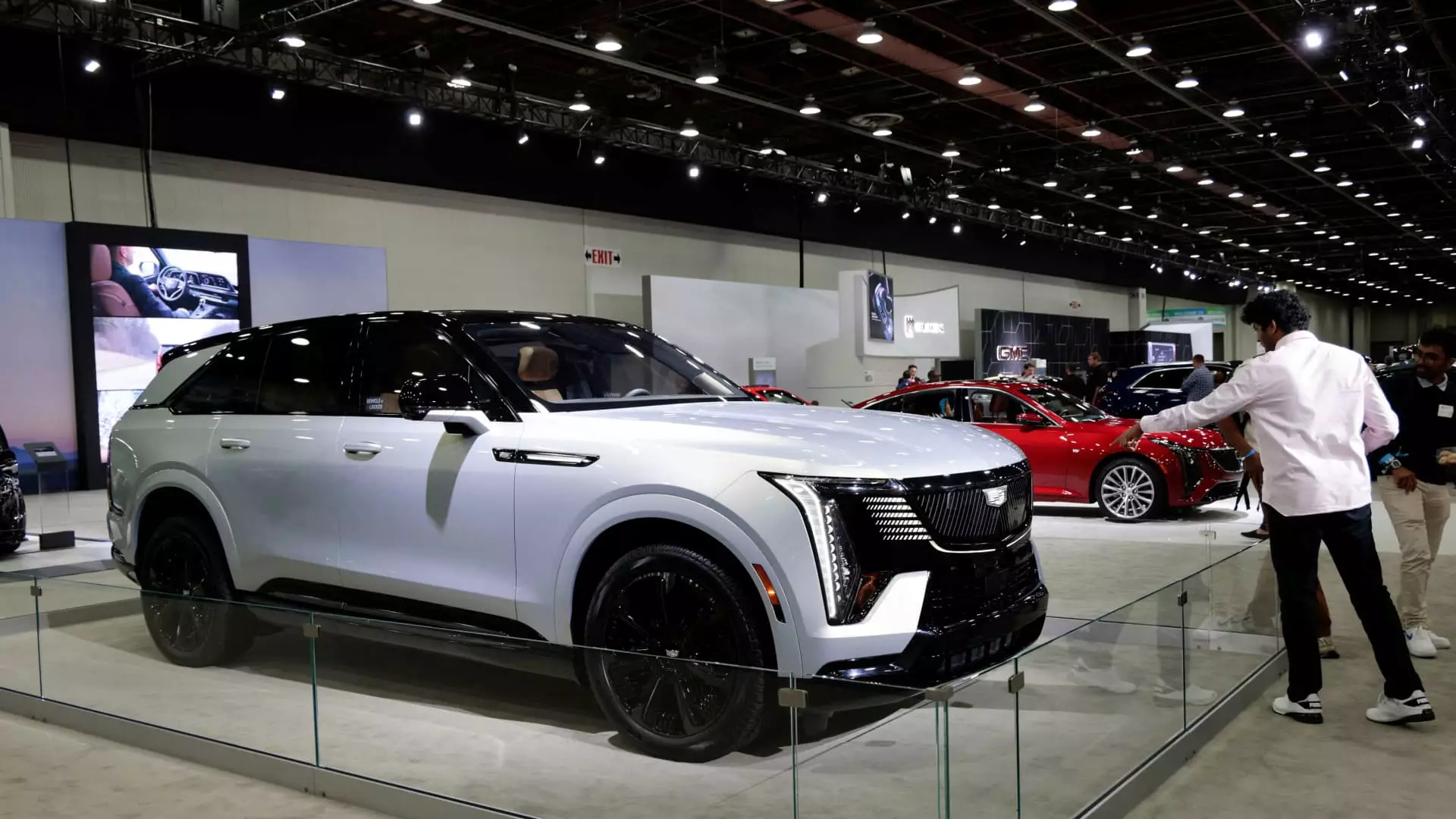In an unprecedented push toward electrification, Cadillac is rapidly expanding its all-electric vehicle lineup, a strategy that appears to be paying off, at least in part. Reports indicate that nearly 80% of customers purchasing a Cadillac EV are newcomers to the brand, which is a promising indicator of its evolving identity in the luxury automotive sphere. Notably, about 10% of these buyers are trading in their Teslas, a significant leap from previous figures hovering around 10% to 15%. It makes one wonder: is this paradigm shift rooted in the desire for superior technology, ethical considerations, or is it merely an escape from the controversial leadership of Elon Musk?
While Cadillac revels in this gradual influx of Tesla owners, it must be cautious not to misinterpret the nature of this transition. Brad Franz, Cadillac’s global marketing director, briefly acknowledges an increasing “conquest rate” and touts the quality of Cadillac’s electric models, but overlooks the subtle undercurrents pushing Tesla customers away. The industry turmoil surrounding Tesla—primarily due to Musk’s politicized behavior and the ensuing backlash for supporting controversial figures—casts a shadow over optimal brand loyalty. Buyers might not be flocking to Cadillac for its EV capabilities per se, but out of a desire to distance themselves from the tumult associated with Tesla’s leadership.
The Diverse Lineup and Its Appeal
This year, Cadillac has rolled out several electric models, including the entry-level Optiq, the midsize Lyriq SUV, and high-end offerings like the upcoming Celestiq, which is poised to exceed $300,000. Cadillac positions this extensive portfolio as a strategic asset in capturing customers who may feel alienated by Tesla’s recent missteps. However, the assertion that many of these Tesla defectors are “cross-shopping” becomes questionable when their alternatives predominantly include other Cadillac models. According to Edmunds, the top cross-shopped vehicles include fellow Cadillac EVs, with little to no interest in comparing against Tesla’s offerings.
This could indicate a subtle shift in consumer mindset; it’s not that these new customers are making an objective assessment between Cadillac and Tesla. Rather, they are making an emotional choice to leave Tesla behind, perhaps in search of a manufacturer who embodies their values—like ethical business practices and transparent leadership. It’s a complex layer that Cadillac may not fully comprehend as they tout mere sales numbers.
Brand Versus Brand: The Real Stakes
Those entangled in the luxury automotive market often concede that brand perception can significantly influence consumer behavior. Cadillac may argue that its products are superior, but can they really outshine the established perception of Tesla’s innovation? In a culture where technology and sustainability converge, many buyers prioritize features like range and autonomous driving capabilities, elements where Tesla has traditionally excelled.
Cadillac’s latest offerings come with intricate features that appeal to a luxury clientele—yet the fundamental question remains: will they resonate with consumers who prioritize cutting-edge technology over plush interiors? While Cadillac is striving to position itself as the leading luxury EV brand, it’s notable that they consciously exclude Tesla from their competitive landscape. Despite the absence of Tesla from their projected sales framework, it raises the question of whether Cadillac’s claims of surpassing market leaders are aspirational or based on factual realities.
A perplexing statistic from Edmunds indicates that Tesla vehicles do not rank among the top 10 models cross-shopped by Cadillac EV buyers. This brings into focus an essential dichotomy: many customers seem to be navigating entirely away from the brand they once admired in favor of Cadillac without seeking direct comparisons. Joseph Yoon, a consumer insights analyst, aptly summarizes this trend, suggesting that shifting out of a Tesla is more about dissatisfaction than a quest for excellence elsewhere.
Deciphering Cadillac’s Future in a Polarized Market
It’s essential to appreciate Cadillac’s ambition in infiltrating the luxury EV sector. Yet, they must tread carefully as they harness consumer discontent with Tesla’s management decisions. If Cadillac continues to build its strategy around overtaking Tesla without addressing why customers leave, they risk aligning their reputation with the very controversy that once turned potential buyers away.
While Cadillac’s sales figures may appear promising on the surface, a deeper analysis reveals that many buyers are likely motivated by sentiments surrounding Tesla’s leadership rather than a preference for Cadillac’s newfound electric charm. If Cadillac desires sustainable growth in an increasingly competitive market driven by innovation and brand loyalty, it must carve out its identity independently of the pitfalls ensnaring its rival. The key lies not just in creating exceptional products but also in fostering a brand ethos that speaks to the values and aspirations of today’s conscientious consumers.

